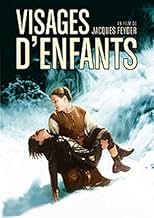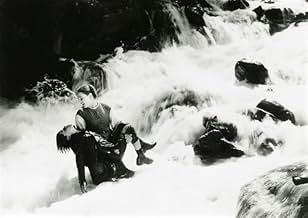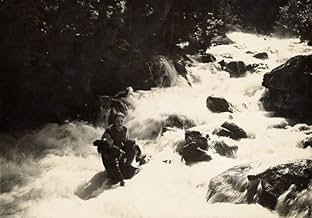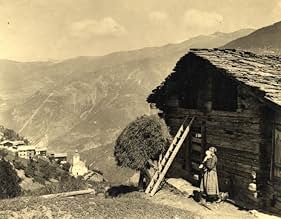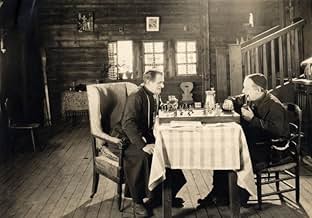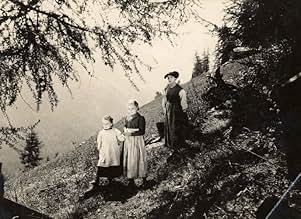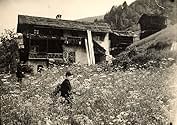Füge eine Handlung in deiner Sprache hinzuA man whose wife has died remarries, and his new wife has a daughter of her own from a previous marriage. The man's young son, however, who loved his mother deeply and misses her terribly, r... Alles lesenA man whose wife has died remarries, and his new wife has a daughter of her own from a previous marriage. The man's young son, however, who loved his mother deeply and misses her terribly, resents his father's new wife, not wanting her to take the place of his beloved mother, and... Alles lesenA man whose wife has died remarries, and his new wife has a daughter of her own from a previous marriage. The man's young son, however, who loved his mother deeply and misses her terribly, resents his father's new wife, not wanting her to take the place of his beloved mother, and makes life miserable for his new stepsister..
- Regie
- Drehbuch
- Hauptbesetzung
Empfohlene Bewertungen
There are many other instances among silent films where acting was characterized by exaggerated body language and facial expressions, a holdover from the stage and compensation for lack of sound and verbal dialogue. In increasing bits and pieces as the medium developed, however, heading into and past the advent of talkies, performances were gradually defined by more natural, nuanced comportment. It's to the credit of everyone involved here, both the cast and director Feyder, that these portrayals mostly fall into the latter category. This is true for all on hand, though of everyone, I'm actually of the opinion that it's the children who stand out most. Jean Forest and Arlette Peyran especially demonstrate controlled range and subtlety in their acting that feels advanced for their youth, and I can't help but be impressed. After all, it's the kids who are the emotional heart of the picture; this could have succeeded without them, as other titles have, but it definitely wouldn't have been the same.
Feyder, meanwhile, illustrates fine skill in orchestrating shots and scenes - not just in terms of taking advantage of the natural surroundings, but in generally ensuring scenes carried all the greatest impact that they could without becoming melodramatic or maudlin. With that said, 'Visages d'enfants' is also a major credit to cinematographers Léonce-Henri Burel and Paul Parguel, who play with techniques that certainly seem novel even for 1925, well after cinema had already been around for awhile. Their methods of filming at night or in the dark, providing a unique first-person point of view, or letting the camera move, and close-ups and more, show an ingenuity that enterprising filmmakers were still mostly just irregularly toying with. Taken together with the filming locations and the production design, the end result is often a mind for perspective that surpasses the more rudimentary photographic foundations that were more common even just a few years before.
If I have any critique to make, it might be that as much as the first half of the picture struggles slightly with tone. At some points it seems to be slanted toward being more of a comedy, or a comedy-drama, which doesn't mesh with the story beats that initially present. It rather comes across at first that Pierre and Jeanne are both just bad parents who don't communicate with their children, or about their children, and who don't necessarily respect Jean and Pierrette's grieving process. Such concerns melt away as the plot progresses, and the back half is as compelling and heartfelt as what one might hope of any feature, but all the same, the disparity is noticeable. Even with that in mind, though, the subjective imperfections or weaknesses are mild and minimal, and by and large the movie is outstanding. From writing and direction, to acting and all those contributions from behind the scenes, it's smartly made with unquestionable care and skill. Any comparisons that may come to call in no way diminish the value of what Feyder's work has to offer: 'Visages d'enfants' is an excellent silent classic that deserves recognition, and is well worth two hours of anyone's time to check out.
This excellent silent is almost derailed in the early running. Specifically, it is when young Jean is determined too sensitive to attend his father's second marriage and sent off to live with his godfather (Henri Duval). The kindly priest's mission is to break the news to Jean gently, and return him within a month. It ends with Mr. Duval dropping Jean off some distance from his house; the boy walks home, alone and unannounced. Then Duvall, presumably a close family friend, is not seen again. All in all, this is a strange way for the adults in this drama to treat a child. It illustrates isolation, of course, but could have been left out or done more eloquently...
However, there are no problems understanding this story. In the opening, director Jacques Feyder crushes the screen with the dead mother's coffin, which we see through the eyes of her son. The death of a parent and introduction of a replacement has a profound effect on young Jean. We feel the full weight of that casket. Performers, especially the children, are captured acting naturally. Location photography of the Swiss Alps is beautiful, especially as set up and angled by Mr. Feyder and his crew. The indoor/outdoor sets are terrific, also. And, the ending approaches D.W. Griffith's "Way Down East" (1920) in icy edited excitement.
******** Visages d'enfants (1/24/25) Jacques Feyder ~ Jean Forest, Victor Vina, Rachel Devirys, Henri Duval
Breathtaking scenery and brilliant cinematography help to capture the raw wild beauty of a troubled child's view of the world.
It would take many years and the brilliance of a Bergman or Lean to recapture such insight and clarity of vision on film.
One interesting note...I think I discovered a rather major gaffe not mentioned on IMDb.
The csreen fades out on a visciously chilling depiction of a brutally cold night (which includes a character being rescued from an avalanche of snow...a title reads "The Next Morning"....and we are suddenly in spring (if not summer) and the horse drawn sleigh of the previous scenes is now a cart...
Still...an otherwise brilliant and fascinating film.
His character is old enough to know something about death and what it means, but his younger sister doesn't have a clue. He walks with his father behind the coffin to see her buried, grieves for her and watches his father's tears with sympathy, while young Pierrette plays with her cat and whatever else she can find. Forest is very good here, all young pillar of strength until he collapses at the graveside, but he's ably assisted by some rapid fire montage work by the editors. This was originally released in 1925 so I wonder if it was before or after Battleship Potemkin with its groundbreaking sequence on the Odessa Steps.
Jean is obviously very attached to his mother, to the degree that he visits her grave every Sunday and sees her portrait come to life and smile at him. However his father feels bad that in the absence of a wife his house and children are being neglected, so he marries again, his new wife being Jeanne Dutois, a young widow who can't pay her rent. This impacts Jean not just because he has a stepmother but because he acquires in the process a stepsister, Arlette, and that leads to plenty of conflict.
The story is solid, very much in the European vein of slow and serious stories full of character development, and that's a good thing. There's decent camera-work too, Feyder and his cinematographers also making plenty of use of the gorgeous countryside to frame his story. It's supposedly France but it was shot in the Swiss Alps and you just can't go wrong with the Swiss Alps as a cinematic background! Feyder seems to be always great when filming in crowds or in public and this film is no exception to that rule. The accompanying 2004 soundtrack by Michael Coppola is great if not awesome, and in fact there's very little bad to say.
The only downside to me was pretty minor, and that was in what seemed to be a little clumsiness in the delivery of some of the actors early on: all adults, I should add, as the children are simply superb. I'm not talking about the traditional overacting of the silent era as this would have been seen as an underplayed film on those grounds. I think it just took a half hour or so for everything to get moving properly, because the film, as you'd expect from the title, is about the kids and maybe the adults had a harder time getting into the story when there were no kids around.
I can't fault any of the scenes that have children in, whether they be between Jean and his stepsister, played by Arlette Dutois, or with adults like Henri Duval as his uncle or Rachel Devirys as his stepmother. It's only early scenes between Vina and Duval or Vina and Devirys that don't quite carry the same weight. Thankfully the children are present for almost the entire film and these scenes are hugely impressive and yet very subtle, often without the benefit (or the distraction) of title cards.
I got drawn into this one far more than into Crainquebille and, to be honest, got lost in the magic of it. By the time the end arrived, which seemed far too soon even though the film is nearly two hours long, I'd forgotten about all of that minor downside entirely. What amazed me most is that none of the three children had long careers in the film industry, stunning given their performances here. According to IMDb, this was Arlette Peyran's only film, and Pierrette Houyez only made three. Jean Forest, the star of this film, went on to appear in ten in all, but switched to a career in radio. What a shame!
Wusstest du schon
- WissenswertesThe film was an artistic success but a terrible commercial failure, causing the bankruptcy of Mundus Film. As for de Zoubaloff, he moved into the radio set selling while Porchet became the technical manager of the Swiss Film Office.
- VerbindungenFeatured in Kino Europa - Die Kunst der bewegten Bilder: The Music of Light (1995)
Top-Auswahl
Details
- Erscheinungsdatum
- Herkunftsländer
- Offizielle Standorte
- Sprachen
- Auch bekannt als
- Nach dem Tode der Mutter
- Drehorte
- Produktionsfirmen
- Weitere beteiligte Unternehmen bei IMDbPro anzeigen
- Laufzeit1 Stunde 54 Minuten
- Farbe
- Sound-Mix
- Seitenverhältnis
- 1.33 : 1
Zu dieser Seite beitragen


